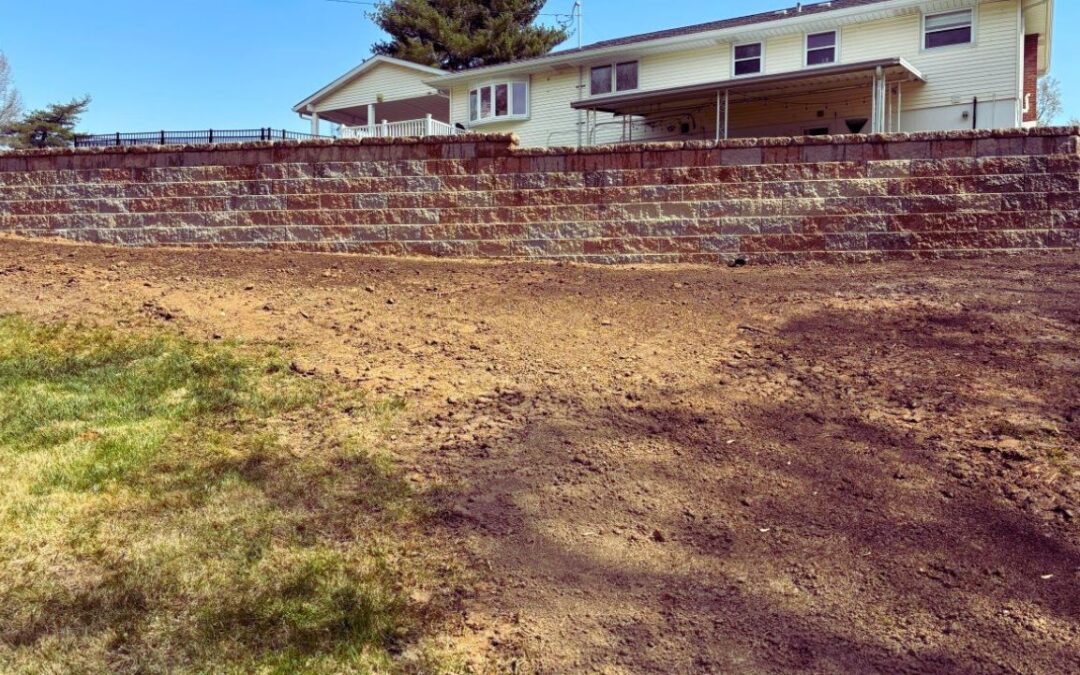A retaining wall supplier is more than just a vendor for blocks and bricks. In St. Louis, where unpredictable rainfall, sloped terrain, and expansive clay soils pose unique challenges, the right supplier offers comprehensive support—from soil evaluation and drainage planning to expert installation. Understanding what a retaining wall supplier actually does can help you avoid costly DIY mistakes and make informed decisions about your property. In this article, we’ll clarify the role of a retaining wall supplier, highlight services specific to Missouri terrain, and explain how partnering with the right team protects your yard from erosion and instability.
Key Takeaways
- A retaining wall supplier offers both products and end-to-end service, including design, drainage, and construction guidance.
- Missouri soil conditions, like expansive clay, require specialized planning and materials.
- Choosing a full-service supplier ensures compliance with local codes, long-term performance, and fewer costly mistakes
What Is a Retaining Wall Supplier?
Is a supplier just someone who sells wall blocks?
No. In St. Louis, a retaining wall supplier is often a full-service partner who provides consultation, engineering coordination, and hands-on solutions—not just raw materials.
Homeowners often confuse suppliers with retail outlets. However, professional suppliers handle slope assessment, material recommendations, permitting advice, and even contractor referrals. The goal is to ensure your wall doesn’t just look good but holds up against local environmental pressures.
Core Services a St. Louis Retaining Wall Supplier Provides
Site evaluation and terrain assessment
Every effective retaining wall begins with a solid understanding of the site. A local supplier will:
- Inspect soil composition and moisture levels
- Measure elevation changes across the yard
- Assess runoff patterns and potential erosion points
This step is essential in areas with sloped terrain, like South St. Louis County or Webster Groves.
Material selection and sourcing
Choosing the right material is more than a style decision. The supplier helps you select based on:
- Wall height and expected soil load
- Long-term weather resistance
- Compatibility with nearby features like driveways or patios
Materials may include concrete block, natural stone, or timber, and are often sourced locally to reduce cost and project delays.
Drainage and structural design planning
A functional wall must be designed to manage hydrostatic pressure. Suppliers help you:
- Integrate weep holes and gravel backfill
- Install French drains where needed
- Determine reinforcement such as geogrid or tiebacks
These features are vital to prevent wall failure in Missouri’s rainy seasons.
Permitting and engineering coordination
St. Louis municipalities often require stamped plans for walls over 3–4 feet. Your supplier can:
- Coordinate with licensed engineers
- Prepare documentation for city or county permits
- Ensure compliance with International Building Code (IBC) standards and local amendments
Construction and contractor coordination
Some suppliers offer in-house construction, while others maintain partnerships with vetted retaining wall contractors. Either way, you’re not left managing unfamiliar trades on your own. For example, our retaining wall installation service in St. Louis ensures that design, material, and construction align for maximum stability.
Why St. Louis Yards Require Specialized Retaining Wall Suppliers
How do Missouri soils impact wall stability?
Expansive clay soil in eastern and central Missouri expands when saturated and shrinks during dry spells. This causes soil movement that can push or pull against retaining walls.
According to the Missouri Geological Survey, smectite-rich clay can expand up to 10% in volume. Without proper reinforcement, this movement causes cracking and failure.
Does terrain vary across the region?
Yes. Areas like Kirkwood, Crestwood, and North County have varying slopes, elevations, and drainage profiles. Custom planning is critical.
- Some lots require terracing or multi-level wall systems
- Others sit in flood-prone basins needing high-performance drainage
A knowledgeable supplier accounts for these variables before any construction begins.
Why do retaining walls matter in St. Louis yards?
St. Louis is known for hilly neighborhoods, aging infrastructure, and frequent heavy rain. These factors make erosion a common problem for homeowners. Retaining walls aren’t just decorative—they prevent slope collapse, protect foundations, and create usable outdoor space.
Do You Need a Retaining Wall in St. Louis? depends heavily on these terrain variables.
FAQs — Working with a Retaining Wall Supplier
Can I just buy blocks and build the wall myself?
Yes, but it’s risky. Most DIY walls fail because they lack compacted base layers, proper drainage, or wall reinforcement. Any wall over 3 feet may also require permits.
Why Retaining Walls Fail: St. Louis Drainage Problems Explained outlines how missing these elements leads to premature wall failure.
How do I know if I need a supplier or just a landscaper?
If your yard has steep slopes, visible erosion, or water pooling, a supplier offers better expertise. Landscapers focus on planting and design—not structural stability.
Is Your Retaining Wall Bowing in St. Louis? or showing signs of pressure? That’s a good time to bring in a professional.
Will a supplier help with labor?
Yes. Most reputable suppliers either provide in-house construction or refer trusted contractors who understand Missouri soil and drainage requirements.
What to Do Next — Partner with the Right Wall Experts
A retaining wall supplier is more than a materials provider. They help you design and build durable structures that account for slope, pressure, soil movement, and long-term weathering.
If your property shows signs of erosion, shifting soil, or slope instability, start by consulting a supplier that understands the local terrain. It could save you thousands in repairs later. Don’t wait until your yard shifts or your wall fails. Partner with a team that understands Missouri’s tough soil conditions, elevation differences, and seasonal drainage challenges. Learn how our Retaining Wall & Paving Solutions in St. Louis can guide your project from start to finish with durable results built for local conditions.
Reference Resources
- Missouri Geological Survey: dnr.mo.gov/geology/geosrv/geores
- St. Louis County Residential Code: https://stlouiscountymo.gov/
- International Building Code 2021 (as adopted): iccsafe.org
- USDA NRCS Soil Survey Missouri: websoilsurvey.sc.egov.usda.gov
